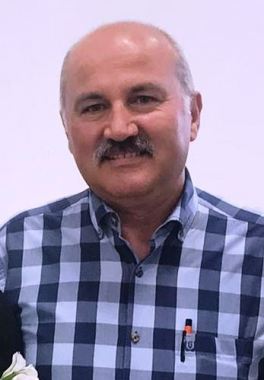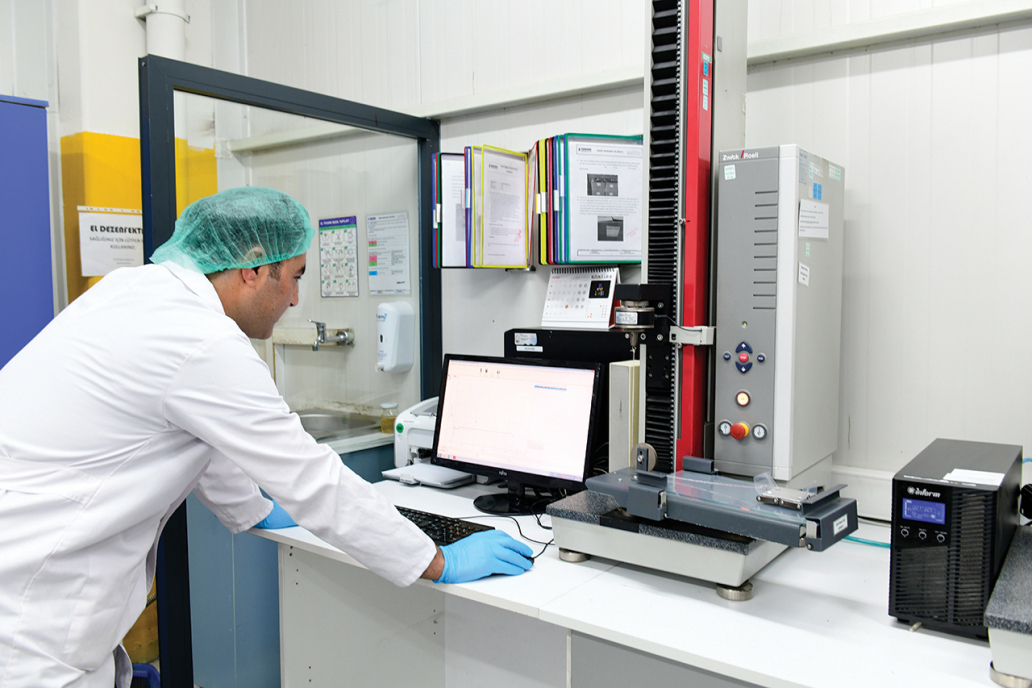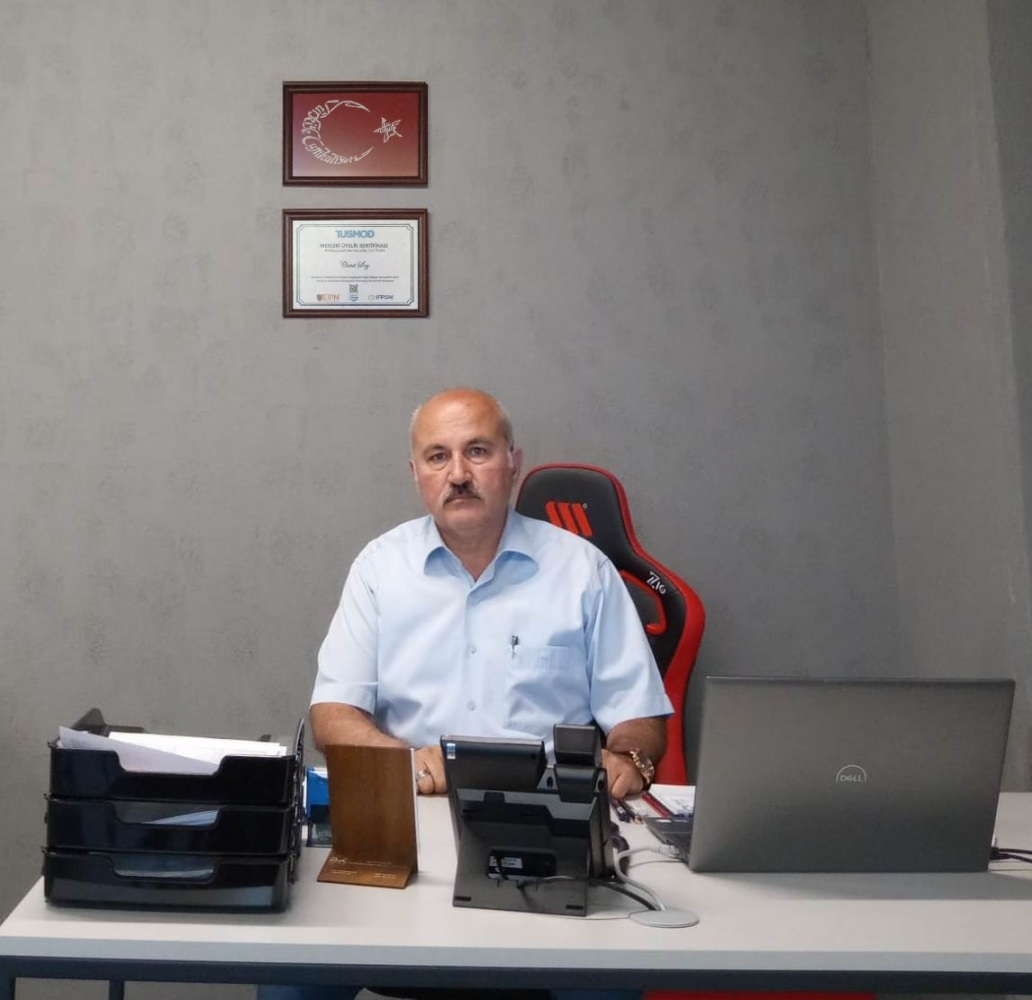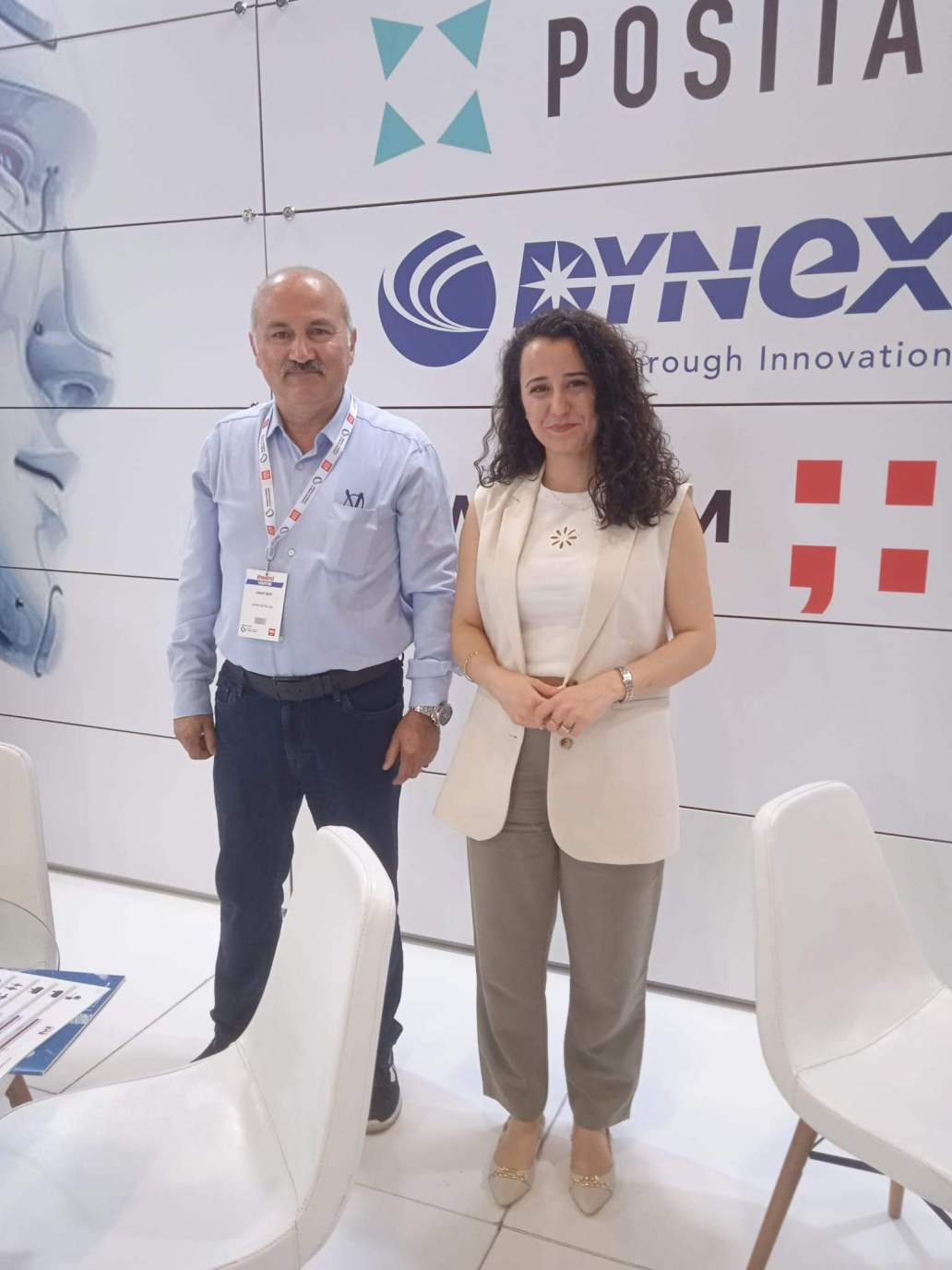
CAVİT SOY
İngilizce Makaleler

EVERY FACTORY IS A UNIVERSITY
Many of my engineer friends with bachelor's degrees are working in factories, producing, and developing. Many of our factories are constantly improving the materials and machines they produce. The laboratories of R&D and product development centres of factories are more advanced than many universities. We often hear about our friends who develop new products or add features that can make existing machines work more efficiently. Quite a lot of new patent applications are being filed on this subject. Factories are obliged to carry out such activities because they compete with the world. Then why shouldn't factory workers have academic careers and titles? What is the obstacle to this? Can't our engineer friends get an academic title if they turn their work into a written thesis and present it to university professors? Why should they not receive the titles of doctor, associate professor or even professor? Perhaps they can do this by taking annual examinations or by producing articles and research. I'm talking about something like the medical speciality exam, the factory speciality exam, FUS...
While an exam has been started to give the title of expert teacher even to our teachers, it is inconceivable that engineers working in factories cannot get such a title.
Factories are the embodiment of ideas, articles, researches, and developments. They are the environments where all scientific and academic studies and experiments are finalised, concluded, and presented to the service of humanity. There are no longer theories and hypotheses but practical results. The factory is the place where all hypotheses, theories, research, and development are finalised, but no product remains as it is produced, it is constantly evolving.
Do you think that something is produced by rote and copying method in factories? If you only knew what meetings, seminars, trainings and discussions are held while machines are being produced. What brainstorms are blowing in laboratories, project and R&D and product development offices. What lightning flashes in the brains of our engineers. What academic discussions are taking place in order for the machine to be more efficient and work more practically, and for the materials produced to be better. How our quality control engineers carry out their controls with great care.
For example, let's take Mrs Ayla, who has been working in the industrial oven sector for 25 years. Mrs Ayla is now a complete expert in industrial oven production. She has spent years in this business, but she does not yet have an academic title.
She has produced thousands of machines, carried out thousands of improvement works, and trained thousands of young engineers. Mrs Ayla took part in all production stages of the machine, starting from project drawing, design, production, assembly, steel, welding, machining, cutting, bending, hydraulic, pneumatic, electrical, automation, fan and ventilation, heat and temperature, refractory and insulation, bearing, motor, reducer and paint. She participated in the test phase where the machine will be used. She performed the quality control and gave approval. As you can see, Mrs Ayla has continuously improved herself for 25 years and has become more knowledgeable than a professor and has perhaps trained dozens of engineers. In addition, Mrs Ayla has even produced machines for the first time in Türkiye and patented projects and inventions.
As a result, we can open a title path for engineers just like our teachers. This will provide morale and motivation for them. They are compensated for their work and labour to some extent. In addition, this title can be used as a criterion in their job search and income. My suggestion is that our engineers can be given titles such as expert engineer, chief engineer, etc. depending on their success and career history through an exam or another study by the chamber of engineers. On the other hand, if their studies, researches and even the projects they have found and registered are turned into a thesis subject and submitted to the university committee, they can also be awarded the title of doctor.

A PURCHASING STORY
Every purchase has a story, and every purchaser is also a story writer. The story begins with the arrival of the purchase request and usually has a happy ending at the end of the process.
It is very important to note and archive all works and transactions related to purchasing, both in digital environment and in files and folders. Both in terms of looking back when necessary and accountability. But it is necessary to take notes without skipping even the smallest detail. Remember, the power and effectiveness of a purchaser is measured by this.
"Knowledge is the greatest power"
I will try to give you a better picture of the event by telling the story of a sample purchase.
In the first stage, the most important issue is that the request must come in writing, via e-mail or ERP, regardless of who it comes from. As a purchaser, do not receive a request verbally or by phone, do not turn that request into an offer or order. Have an "order footprint" that you can easily follow.
As you can see, I started writing the story by answering the following questions.
- Who made the request? Has the requestor's immediate superior verified and approved the request? For which project was the request made?
- Has this product been purchased before? How many, for which project, from which supplier, from which brands and for how much?
- What was the story of the previous purchase? How long were we told we had for the purchase? Or was it requested very urgently?
- Is a specific brand required for the requested product?
- Is there a visual, drawing about the product? Or is it a standard product?
- Do I need to take two in stock in case I need it in later projects or in case of any mishap?
Next was the bidding process. I received offers from at least three companies. I compared these offers in many respects such as deadline, price, quality, company history, payment terms, delivery terms, and meticulously selected the company I would purchase as a result of negotiations. The conditions in my supplier profile that I had used before were effective in my selection. One of the three suppliers was a company I met recently at the fair, and I wanted to see their performance on this occasion.
Naturally; I chose a company that is easy to reach, provides fast feedback, can provide certificates, has a reasonable price and payment term, makes fast and regular shipments, works in stock in case of repurchasing later, where I can get technical support, can get easy returns if necessary, and does not use the word NO. In short; I bought the best quality product, in the shortest time, at the most affordable price, under the best conditions.
Two days after I approved the offer, the products arrived. My warehouse attendant friend received the material with the delivery note and registered it in the system. I informed the relevant units that the product had arrived and shipped the products to the manufacturing and assembly department. Since it was not an advance, prepaid, short-term purchase, I did not feel the need to inform the accounting in advance. Since it was already a sixty-day term and low-cost purchase, I thought that the accounting would take it into the payment plan when the time comes. If it was a DBS or short-term and high amount purchase, I would definitely find out the payment status from accounting before turning it into an order and take a position accordingly.
Interesting things can sometimes happen to us at this stage. If it comes by cargo, sometimes the package may be torn, or the product may be damaged. It may even be that the cargo company delivers it to another company due to name similarity. If I have directed my own vehicle to pick up the product, the vehicle may have a flat tyre on the road and lose time.
The order in this story was a short-order product. For long-term orders, as the delivery time approaches, it is necessary to get information about the latest situation and progress, and to find out whether there are any setbacks. Otherwise, you may encounter bad surprises. It may be necessary to bind such orders to the contract and impose penalties in case of delay.
All possible mishaps must be written into the story. For example, if you are asked why the product was late, you should be able to say "the vehicle had a flat tyre on the way". Likewise, if you are asked why the product arrived defective, you should be able to answer "the product was damaged when it came from the cargo".
On the same day or a few days later, the invoice for the product entered the system. At this time, as a purchaser, I checked the invoice, confirmed its conformity with the delivery note and the offer, and after confirming it, I directed it to a higher approval and accounting.
All these stories are your experience. Your purchases are recorded to be included in the costing of overheads and projects and later reflected in the report. At the same time, the stories are written as plus or minus points for your suppliers.
Do not be misled by the length of this story we have written about the purchase of only one item of material, the purchaser has 1-2 days to write this story. Because there are hundreds of stories waiting to be written and at the end of the day, the purchasers will have written a novel. 25 novels a month...
As can be seen, in our story we sought answers to questions such as what, when, for what, why, from whom, from where, for what purpose, for which project, how did you get it, whose request was it. We operated the five ws and one h rule valid in journalism. Now you can look ahead with peace of mind and provide clear answers to all questions about this order in the future, and most importantly, you can easily answer your managers. This transparent purchasing process and the story you write make you reliable. Anyway, our task is to reduce the costs and affect the profitability of the company we work with. Therefore, it is our duty to make a traceable and sustainable purchase.
Another important issue is that the purchaser should have a minimum of technical knowledge about the materials he/she purchases as well as his/her competence in his/her own profession.
In this article, I was inspired by Cemir Çınar's book "Storytelling". I would like to thank him.

DIFFERENT PERSPECTIVES IN SALES AND PURCHASING
Looking and seeing are different things. When a person looks in one direction, one sees what one focusses on. Or when asked for details of what one has seen, s/he has to look again carefully. When s/he wants to see something else, s/he has to look again or change his/her point of view.
There are problems that can be solved only by seeing, tasks that can be done if you focus carefully, and problems that can be solved if you change your point of view. For example, the easiest way to solve a problem in geometry is to be able to see what is given. If you want to be victorious in chess, you need to be able to see five moves ahead in your imagination.
There are also different perspectives in purchasing.
It is one point of view to get prices from three different places and place an order with the most favourable supplier. In addition to the price, it is another point of view to place an order by looking at the term, payment term and the company's history of working with you.
Another new point of view I have found for myself is to look at the future of the company you are going to order from. In other words, where do you see that company in ten years or twenty years? Will it be able to provide spare parts or service, repair and revision of the goods it produces when a problem arises ten years later? I think that we need to put aside the short-term company stories and create and maintain companies with a fifty-year and longer life span, both when selling and buying.
It is one point of view to buy quality material even if the price is a little high from the beginning and forget about it. It is another point of view to prefer poor quality material and remember it every year and spend extra cost and time to change the material.
It is a price-orientated point of view to cross out the prices and ask for imaginary discounts. It is another point of view to learn what you buy, to research, to improve yourself, to recognise the material and service and to ask for a conscious discount by making realistic costs.
It is one point of view to think short-term in every purchase and buy from new suppliers who want to work with you for the first time at the most favourable price. It is another point of view to continue to buy from your current supplier, even if the price is a little higher, and to turn the high turnover you have achieved at the end of the year into a bigger discount.
It is a point of view to stop bidding because there is not enough response to the offers. It is another point of view to continue bidding with hope and patience and to receive orders even after years.
It is one point of view for sellers to bid high first and wait for the result, and when they find out that the buyer has ordered from elsewhere, to say ‘I wish you had bought from me, I was going to give you a discount anyway’. It is another point of view to make the most appropriate offer from the beginning.
Again for sellers, it is a point of view to give very reasonable prices in the first few purchases and then secretly increase the prices gradually after getting the customer used to it. It is another point of view to give confidence to the customer by maintaining the affordable price line for years.
Reaching customers by advertising on the internet and social media is one point of view. It is another point of view to establish sincere dialogues by making on-site and face-to-face meetings.
It is a point of view to keep stock for the materials that the customer constantly buys. Not working with stock is another point of view.
Having only a sales team and focusing on sales is one point of view. In addition to sales, it is another point of view to employ solution-oriented technical staff.
Never compromising on advance sales and not knowing what you are missing is one point of view. It is a different point of view to win the customer who makes continuous purchases and to work with thirty, sixty days maturities, and to receive payment every week when the maturity expires. (Credit card logic)
Likewise, it is one point of view to never compromise on selling in foreign currency and not knowing what you are missing. It is another point of view to win the customer who constantly buys and to work with TL, to earn from the version by taking a little risk.
It is one point of view to go there immediately when there are export opportunities, to export at a more favourable price than the domestic market, in the meantime to completely stop the supply of goods to the domestic market and to condemn it to poverty, to push purchasers to search for new alternative suppliers so that they will never return again. It is another point of view to act by considering not to lose the domestic market while exporting and to be balanced in exports.
Dealing directly with the boss and bypassing the buyer in order to make a sale or enter the company is one point of view, contacting the buyer and developing good relations is another point of view.
We are currently going through a difficult period in economic terms. There is a contraction and cash shortage in the market. I am sure that all companies are paying more attention to price, maturity and term when purchasing purchases. The priority is to eliminate their stocks and not to make stocked purchases and to make purchases according to daily needs. Make sure that in this period, companies that have worked continuously over the years and have not squeezed you too much in terms of payment are preferred. Finally, a difficult period has come, and they have become more preferred. In other words, these are the companies that reap what they sow and reap the fruits of their patience.








